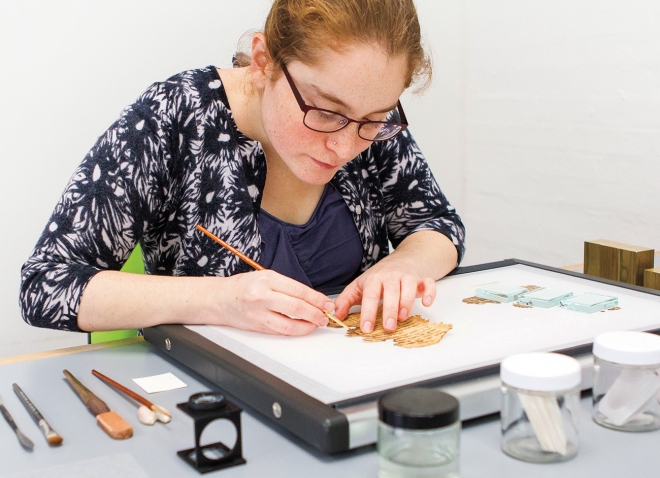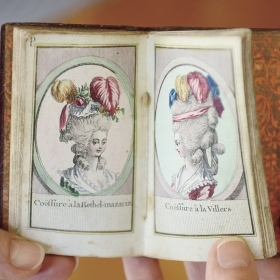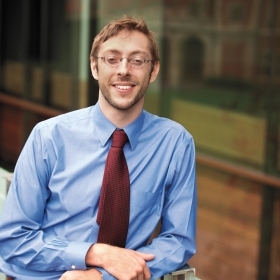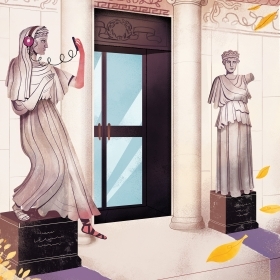Mary Hamilton French ’09 is a book and paper conservator at Cambridge University Library in England, and for the past two years, she has been sifting through and repairing hundreds of pieces of paper intended for the rubbish heap. But as they say, one person’s trash is another person’s treasure, and, in this case, the paper detritus from a synagogue in Cairo turned out to be a treasure trove of medieval Jewish history.
In the Jewish tradition, when religious materials, or anything containing the name of God, start to break down, they are placed in a storeroom known as a genizah until they can be ritually buried. “Typically, genizahs are emptied about every seven years,” explains Mary. “But for whatever reason, nobody did for about eight centuries.”
In the late 19th century, a pair of intrepid and linguistically gifted Scottish sisters, twins Agnes Lewis and Margaret Gibson, found portions of the genizah for sale in a Cairo bazaar, and brought them back to the UK, where scholars recognized their significance. Today, some 300,000 manuscript fragments have been uncovered from what is now known as the Cairo Genizah. And in 2013, more than 1,700 documents from the sisters’ own collection made their way to the Cambridge University Library, where Mary has worked to preserve them with a little starch paste and Japanese tissue paper—and a lot of patience.
The papers that have passed through Mary’s skilled hands range from the holy (Bible fragments and liturgical poetry) to the mundane (a grocery list for a “fat hen,” some “good olive oil,” and chard). Highlights include one of the earliest-known divorce documents and a manuscript written by the hand of Moses Maimonides.
Mary’s career in conservation is a far cry from the degree in psychology she intended to earn at Wellesley, but a series of Wintersession workshops in the Book Arts Lab during her first year reset her course. Soon all of her spare time was devoted to the book arts, including a for-credit course, a work-study job in the Book Arts Lab, and summer jobs in book conservation at Clapp Library. “It’s funny, but I became a combination of my parents, career-wise,” she observes. “My mom is an arts administrator, and my dad is an instrument conservator of fortepianos and harpsichords.”
After graduation, she interned with the special collections at Harvard Business School and the Boston Athenaeum before earning a master’s degree in book conservation at West Dean College in England in 2013. Along the way, she has repaired books from George Washington’s personal library, worked on manuscripts by Charles Darwin (a distant relation), and exhibited her bookbinding to Queen Elizabeth and Prince Charles.
After Mary finishes her conservation of the Lewis-Gibson collection this fall, she will fast-forward to the modern era and begin work on archives from the Changi internment camp, a Japanese POW camp in Singapore during World War II, which are also housed at Cambridge. “One of the rewarding things about what I do is feeling that I’m helping preserve this history for future generations,” says Mary. “[The Cairo Genizah] has already been around for a thousand years, but the hope is that [now] it will be around for another thousand.”








We ask that those who engage in Wellesley magazine's online community act with honesty, integrity, and respect. (Remember the honor code, alums?) We reserve the right to remove comments by impersonators or comments that are not civil and relevant to the subject at hand. By posting here, you are permitting Wellesley magazine to edit and republish your comment in all media. Please remember that all posts are public.